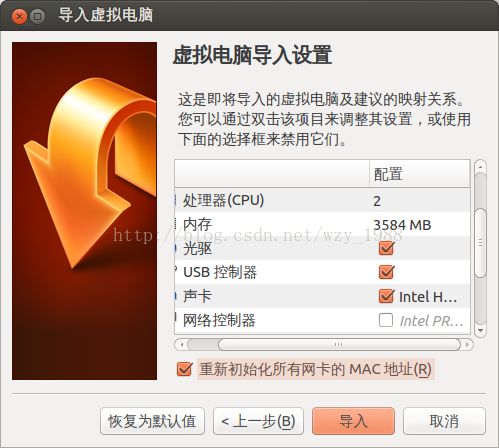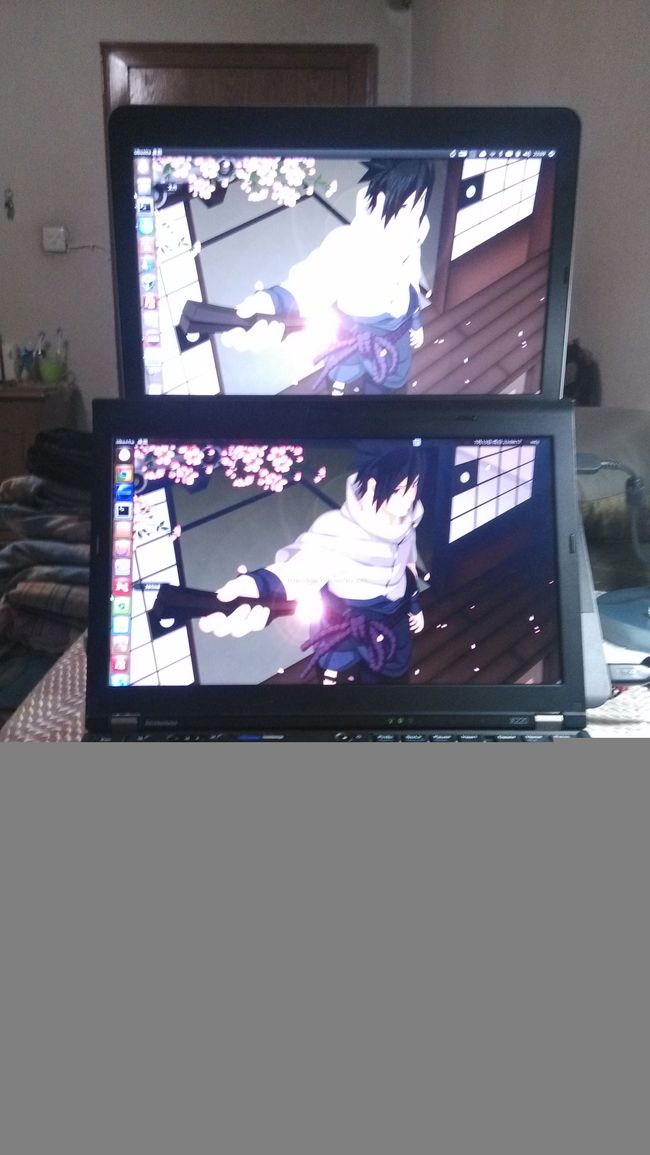配置Ubuntu开发环境
前言
新买了一台ThinkPad E431,主要看中了硬盘500G和7200转/分钟的速度,因此准备从x220上把工作环境迁移到新买的笔记本上。为什么不要公司的电脑,是因为160G的ssd硬盘实在是太小了,而且我又不会用windows,刷机有需要windows上的工具,因此只能自己掏腰包再购置一台电脑了,奢侈啊!
吐槽一下,一台笔记本的好坏跟拆机的困难程度成反比,E431拆机太困难了,为了把之前导师给我的内存条装上,拆后盖拆了将近半小时。
U盘安装Ubuntu13.10
之所以选择Ubuntu13.10,确实是因为Ubuntu14.04和Thinkpad E431有些不兼容,无奈之举。但是制作U盘启动的过程中,也遇到了UltraISO打开iso镜像文件不完整的问题,解决方法参考链接: 解决UltraISO打开iso镜像不完整的方法
无线网卡驱动
Ubuntu13.10安装后,竟然没有wifi驱动,这也让我郁闷了一阵,google查看资料,解决方法如下:
查看无线网卡型号:
$ lspci
ThinkPad E431的无线网卡型号是:BCM43142,重新安装无线网卡驱动:
$ sudo apt-get update $ sudo apt-get install --reinstall bcmwl-kernel-source
重装bcm驱动之后,无线网卡的问题基本就解决了。
替换源
ubuntu官方的源速度比较慢,我目前使用的是网易的镜像源,速度还是非常快的。
deb http://mirrors.163.com/ubuntu/ saucy main restricted universe multiverse deb-src http://mirrors.163.com/ubuntu/ saucy main restricted universe multiverse #Added by software-properties deb http://mirrors.163.com/ubuntu/ saucy-security main restricted universe multiverse deb-src http://mirrors.163.com/ubuntu/ saucy-security main restricted universe multiverse #Added by software-properties deb http://mirrors.163.com/ubuntu/ saucy-updates main restricted universe multiverse deb-src http://mirrors.163.com/ubuntu/ saucy-updates main restricted universe multiverse #Added by software-properties
设置BIOS
这里是针对ThinkPad E431这款机型进行特定的BIOS设置,主要有两处:
1. 关闭默认Fn功能键
Thinkpad E431默认关闭了Fn功能键,也就导致我在浏览器中按F5不是刷新,而是增加屏幕亮度,Eclipse里的各种调试更新无法使用,所以这里必须修改。ThinkPad E431 SB啊,默认关闭这个功能,我擦!
关闭方法(BIOS里没有legacy功能):
2. 开启虚拟化支持
因为我使用了Virtualbox,因此需要开启虚拟化支持,开启方法:进入BIOS->Security->Virtualization-> Enable即可
搭建Android开发环境
因为目前在阿里做Android和YunOS开发,因此肯定需要配置JAVA和Android环境,配置过程我单独写了一篇文章,大家可以参考。链接: Ubuntu13.10搭建Android开发环境
配置Terminal
Ubuntu自带的终端是gnome-terminal,我认为是很好用的,但是初始配色和字体过于丑陋,只需要简单的配置修改即可。
安装Manaco等宽字体
这是Mac的默认字体,非常漂亮,Ubuntu13.10安装Manaco字体可以参考我的配置脚本:
#!/bin/bash #script extraido de: http://paulocassiano.wordpress.com/2008/08/29/deixando-o-gedit-com-a-cara-do-textmate/ #tip for better "resolution" here: http://blog.siverti.com.br/2008/05/22/fonte-monaco-no-ubuntugedit/ cd /usr/share/fonts/truetype/ #if monaco dir not exists, then create it if [ ! -d ttf-monaco ]; then sudo mkdir ttf-monaco fi cd ttf-monaco/ sudo wget http://www.gringod.com/wp-upload/software/Fonts/Monaco_Linux.ttf #create an index of X font files in a directory sudo mkfontdir #go to parent folder /usr/share/fonts/truetype cd .. fc-cache
配置terminal使用solarized配色
可以参考github别人写好的脚本,地址:https://github.com/Anthony25/gnome-terminal-colors-solarized
配置dircolors
完成上述操作后,你会发现ls之后目录和文件都是一片灰色,这是因为默认情况下solarized各种bright方案基本都是灰色,而系统默认显示目录和文件时多用bright色,此时需要配置dircolors才能显示出彩色的文件和目录。
github也有人给出了配色方案,我都是选择dark,地址:https://github.com/seebi/dircolors-solarized/blob/master/dircolors.ansi-dark
同时,将dircolors.ansi-dark改名为.dircolors存放于~目录下,然后在.bashrc中增加如下内容:
#enable color for gnome-terminal
if [ -x /usr/bin/dircolors ]; then
test -r ~/.dircolors && eval "$(dircolors -b ~/.dircolors)" || eval "$(dircolors -b)"
alias ls='ls --color=auto'
#alias dir='dir --color=auto'
#alias vdir='vdir --color=auto'
alias grep='grep --color=auto'
alias fgrep='fgrep --color=auto'
alias egrep='egrep --color=auto'
fi
# some more ls aliases
alias ll='ls -alF'
alias la='ls -A'
alias l='ls -CF'
source .bashrc即可
这里参考了张洋大神的博客,原文地址:http://blog.codinglabs.org/articles/getting-started-with-ubuntu.html
配置VIM为默认文本编辑器
在~/.bashrc文件里,增加如下命令:
# set vim to default editor export EDITOR=/usr/bin/vim
效果
截个图给大家看一下效果,看起来还是很舒服的。
中文目录名改为英文
默认的中文名很讨厌,特别是在终端里执行cd命令,痛苦的要死,因此需要转换成英文目录,转换方法参考我之前的一篇博客: Linux将中文目录名改为英文
常用工具
以下是我特别推荐到在Ubuntu下特别高效的辅助工具。
Chromium
基本上我的编程世界离不开google和chrome,Ubuntu上有chrome的开源版本chromium,然后通过gae来那啥,最后用google帐号同步数据即可,密码我是用lastpass管理的,同样google帐号同步数据即可。
配置Adobe Flash Player
安装完chromium还存在问题,截图如下:
安装步骤也不能,我这里下载了适合linux的压缩包,解压之后有这么几个文件:
readme.txt里有安装步骤,英语很简单的,大家不要抵触就好,摘取关键段落出来:
Installing using the plugin tar.gz: o Unpack the plugin tar.gz and copy the files to the appropriate location. o Save the plugin tar.gz locally and note the location the file was saved to. o Launch terminal and change directories to the location the file was saved to. o Unpack the tar.gz file. Once unpacked you will see the following: + libflashplayer.so + /usr o Identify the location of the browser plugins directory, based on your Linux distribution and Firefox version o Copy libflashplayer.so to the appropriate browser plugins directory. At the prompt type: + cp libflashlayer.so <BrowserPluginsLocation> o Copy the Flash Player Local Settings configurations files to the /usr directory. At the prompt type: + sudo cp -r usr/* /usr
chromium在Ubuntu13.10的插件目录位置为:/usr/lib/chromium-browser/plugins,安装脚本如下:
#!/bin/bash #unpack adobe dir adobe_dir=/home/wzy/Downloads/flash #copy .so to chromium plugins direcotry cp $adobe_dir/libflashplayer.so /usr/lib/chromium-browser/plugins #copy abobe flash player settings configurations files to /usr directory target_dir=/usr for dir in `ls $adobe_dir/usr`; do if [ -d $target_dir/$dir ]; then cp -r $adobe_dir/usr/$dir/* $target_dir/$dir/ else cp -r $adobe_dir/usr/$dir $target_dir fi done
谷歌拼音输入法
Ubuntu13.10自带了Pinyin输入法,但是习惯了fcitx,并且谷歌输入法也是基于fcitx,安装命令如下:
$ sudo add-apt-repository ppa:fcitx-team/nightly && sudo apt-get update $ sudo apt-get install fcitx-googlepinyin
shutter
非常好用的截屏软件,还可以对图片进行编辑,软件中心搜索shutter安装即可
VirtualBox
因为我的500G硬盘全部用来装Ubuntu13.10,但是平时还有用旺旺和QQ以及其他window软件的需要,因此需要搞一个虚拟机,这里强烈推荐VirtualBox,它可以非常方便的将我在x220上的win7虚拟主机迁移到新买的E431上。
安装VirtualBox参考官方即可:https://www.virtualbox.org/wiki/Downloads
导出虚拟电脑:管理->导出虚拟电脑->选择ova文件的存储位置
导入虚拟电脑步骤如下:
1. 管理 -> 导入虚拟电脑
2. 虚拟电脑导入设置
注意:(1)这里需要勾选重新初始化所有网卡的MAC地址,这样新生成的虚拟机就会自动从DHCP获取新的IP与其他导入的虚拟机不会有冲突。(2)将”网络控制器”选项取消勾选, 便于启动。
3. 漫长的等待虚拟机导入即可
影音
Ubuntu下专业的影音软件非VLC莫属,安装命令如下:
$ sudo apt-get install vlc
后记
好感慨,陪我三年的x220就要送还给导师了,这个笔记本陪了我三年,见证了我的成长,想把它留在身边,但是我知道大家都需要向前看,拍了个照片留做纪念了,新的笔记本E431也出境了。


